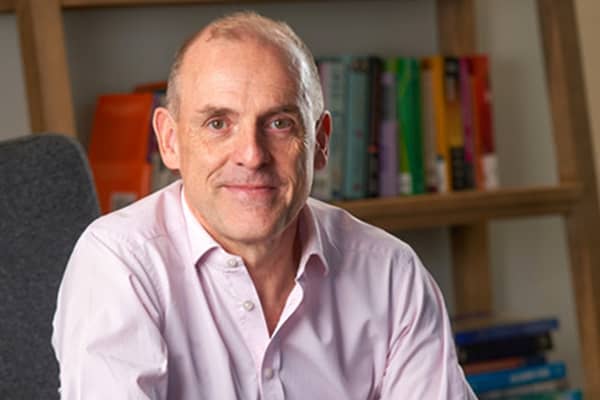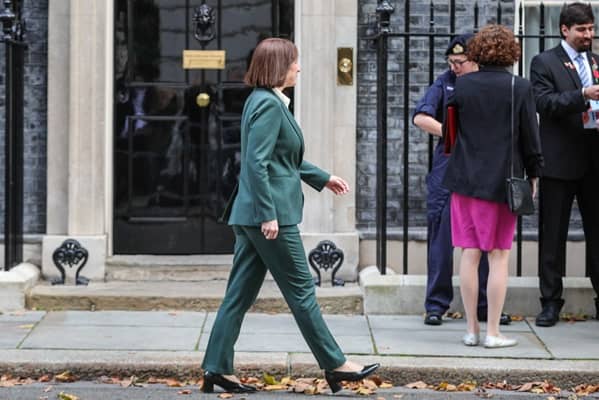Bussiness
Paul Pester on the role of bank boards during industry disruption – London Business News | Londonlovesbusiness.com

A board of directors can serve a number of practical functions, such as helping a company satisfy regulatory requirements.
Yet boards can also contribute in other beneficial ways, according to Paul Pester, a U.K.-based financial industry professional who has spent the past 25 years leading companies with both traditional and innovative, emerging business models.
In an interview with Oliver Cummings, CEO of Nurole, on the “Enter the Boardroom With Nurole” business podcast, Pester said boards generally can operate on three possible levels.
“At its very base level, or level one, a board is there to satisfy the regulatory requirements,” he said. “At level two, as a board, I can use my experience and my insight and my knowledge to hold the directors — the executives — to account. But I think the board really adds value when it gets to its level three — and at level three, the board, alongside the executive, are entrepreneurial leaders of the business.” Pester adds that he believes that too many boards struggle to get to level three and frequently find themselves stuck in level one, failing to really add value to a business.
A board’s overall comfort level and mindset, Pester said, can facilitate members being able to make that type of contribution.
“The way the executive provides information to the board, the way the executive engages with the board, absolutely influences the board’s ability to get to level three,” he stated. “Making sure that the executives are presenting their insights, their data, in a way that enables the board to get up to level three and focus on entrepreneurial leadership is key.”
Disrupting the fintech market with input from the board
In 2022 , Paul Pester launched Loop, a social network app that helps friends manage expenses and lend and borrow money from each other to avoid overdraft fees.
Pester came up with the idea for the app during the COVID-19 pandemic lockdown period, after noticing his niece had taken an overdraft from Barclays.
“If people use overdrafts, on average, they use them seven times a year — so they are in and out of overdrafts every other month — and on average, 40% of all overdrafts are less than 50 pounds,” he says. “It’s incredible when you look at the numbers.”
Loop initially had a small board, Pester said, essentially to fulfil legal requirements, consisting of him and the CEO of Mirko Giacco — and an advisory board to help guide the entrepreneurial leadership of the business, which included working with fintech and other financial professionals.
“Why did we choose that particular combination for the advisory board?” he said. “To me, they brought every [element] we were starting to struggle with in building a startup from scratch. I was really grateful that they were willing and able to contribute the time to helping this slightly crazy idea of starting from scratch for someone who’s been used to running a bigger business.”
The advisory board’s input led the fintech startup to create a functioning prototype of the app, which was then used in its fundraising efforts.
“There was a really important role for the advisory board to play at that point,” Pester said. “The reason for not having them as a formal board was all of the obligations that come with being formal board members. It was easier for me and the CEO, Mirko, to carry those obligations, but instead use the advisory board as their name suggests, for advising and really helping with the business.”
In 2023, Loop was bought by Tandem Bank — one of the initial U.K. “challenger banks” that emerged after the 2008 financial crisis. Pester currently serves as chairman of the digital bank, which offers consumers a greener way to save, borrow, spend, and share money.
Typically, he spends two to three days a week in Tandem’s offices — because, he told Cummings, “There’s so little you can actually glean from a two- or three-hour board meeting, maybe once a month, once every other month.”
Understanding a company’s business model can be critical as a chairman. Paired with previous professional experience, that insight can help you start to identify what strengths, weaknesses, and risks may exist, Pester said on the podcast.
“I’m not getting under the CEO’s feet, but I’m just trying to pick up how the business is functioning,” he said. “That’s absolutely vital. My obsession is absolutely around being close to the business and making sure that the board really understands that.”
Defining a new business model’s mission
Earlier in his career, Paul Pester served as the CEO of Virgin Direct — a joint venture between the Virgin Group and AMP, a large Australian financial services business — which he relaunched as Virgin Money.
During the podcast, he spoke with Cummings about the digitally focused banking and financial services organisation’s rotating board position, which Pester says was part of its joint venture agreement.
“The board was amazing,” Pester said. “We had such a contrast. We had two chairmen that would rotate. One was Richard Branson — incredible to have Richard Branson as a chairman — and the other was Sir Malcolm Bates. He was the managing director at GEC under Lord Weinstock, and an industrialist in the old style of a British manufacturing business.”
AMP and Virgin would take turns chairing meetings; Branson generally focused on customer outcomes, Pester said, and Bates tended to home in on economic-related aspects.
“In some respects, it was incredibly helpful to have the complementary aspects of someone like Sir Malcolm Bates and Richard Branson,” Pester said. “On the other hand, it did require the executive team to bring a level of consistency and a level of continuity between the various board meetings.”
The conversation at meetings could vary, he told Cummings, depending on which chair was present.
“Both [were] actually equally valuable, but just different,” he said. “That was an enormous lesson to me, certainly, in my first CEO job.”
A company can benefit, Pester said, from a CEO emphasising a common cause and purpose that exists within the business.
“I think it was not stated, or I did not state it, as clearly as it could have been [at Virgin Money],” he said. “If I was to rewind and try to state it now, I would be saying something like, ‘We’re going to build an extremely valuable, challenger business by taking on the traditional banks and financial services businesses in the U.K. and giving consumers a better deal.’”
Building a successful business would likely have resonated with Bates, Pester said; he anticipated the reference to taking on established banks that are failing consumers would appeal to the approach Richard and Virgin were taking.
“The importance of purpose — the importance of having a cause for an organisation — was something that I was still learning,” he told Cummings. “A CEO has got a really important role to play when they engage with the board in reminding the board regularly, and frequently, and ad nauseam of that purpose. That’s what drives the business.”








